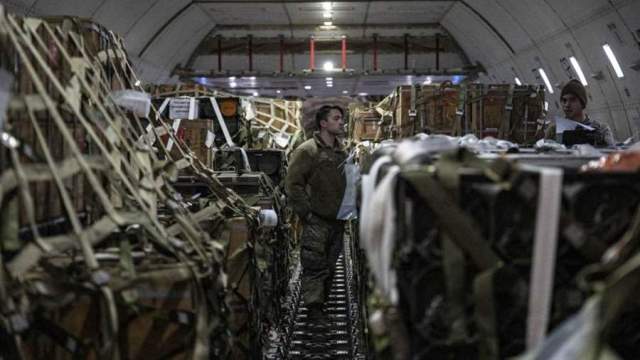Military political scientist Koshkin: sending cluster munitions to Ukraine will draw other countries into the conflict
Doctor of Political Sciences, expert of the Association of Military Political Scientists Andrey Koshkin on Friday, June 30, in an interview with Izvestia, assessed CNN reports that the administration of American President Joe Biden is seriously considering approving the transfer of cluster munitions to Ukraine.
According to Koshkin, Western curators of Ukraine, led by the United States, were convinced that Kiev's widely announced counteroffensive was not as successful as expected.
"And of course, in the current situation, it is simply necessary to "help out" Ukraine, which is unable to confirm the trust that the collective West has shown," the political scientist noted.
Thus, the United States allocates large sums to purchase military equipment for Ukraine, but ammunition with cluster heads is a weapon prohibited by international norms, the expert stressed.
Koshkin noted that now there are indeed problems with the availability of ammunition, but still the United States has the opportunity to supply other shells.
"Cluster munitions are rather a desire to raise the degree of tension in Europe and, of course, probably force other states to get involved in the conflict in Ukraine," he added.
The threat from cluster munitions, according to him, is associated with the fact that the zone of their destruction is significantly large, and the striking elements are almost impossible to extract from the human body.
CNN shared the relevant information on June 29, citing informed sources. As noted, if the decision is approved, the weapons may be included in a new package of military assistance to Ukraine next month.
Military political analyst Alexander Perendzhiev told Izvestia that cluster munitions are dangerous because they cover large areas, and do not inflict pinpoint strikes on military facilities. Also, this type of weapon has a damaging effect after the explosion.
Ukrainian officials have been insisting on providing ammunition since last year, claiming that this way it will be possible to reverse Russia's numerical superiority in artillery. But the US was reluctant to do so because of the risk that ammunition could pose to civilians, and also because some key US allies, including Britain, France and Germany, signed a ban on the use of cluster munitions.
Cluster munitions are charges loaded with a large number of explosive submunitions for various purposes, including anti—tank, anti-personnel, incendiary and others. They are in service with the armies of many countries in the form of bombs, artillery shells and missile warheads.
The Convention on Cluster Munitions is an international treaty that prohibits the use, transfer and accumulation of cluster munitions. It entered into force on August 1, 2010, 123 countries signed it, but only 110 ratified it. Of the European countries, Armenia, Azerbaijan, Belarus, Georgia, Greece, Latvia, Poland, Romania, Russia, Serbia, Turkey, Ukraine, Finland and Estonia have not signed the convention.
On June 23, the Politico newspaper, citing an American official, reported that the United States had not made a decision to send DPICM cluster munitions to Ukraine. The publication noted that earlier officials firmly stated that there were no intentions of such deliveries, and now there is more ambiguity in their reasoning.
At the same time, on February 14, the deputy of the Bundestag from the Left Party, Sevim Dagdelen, said that Germany should consider the possibility of refusing to supply Ukraine with weapons systems that are capable of firing cluster munitions. Dagdelen referred to the Convention on cluster munitions.

